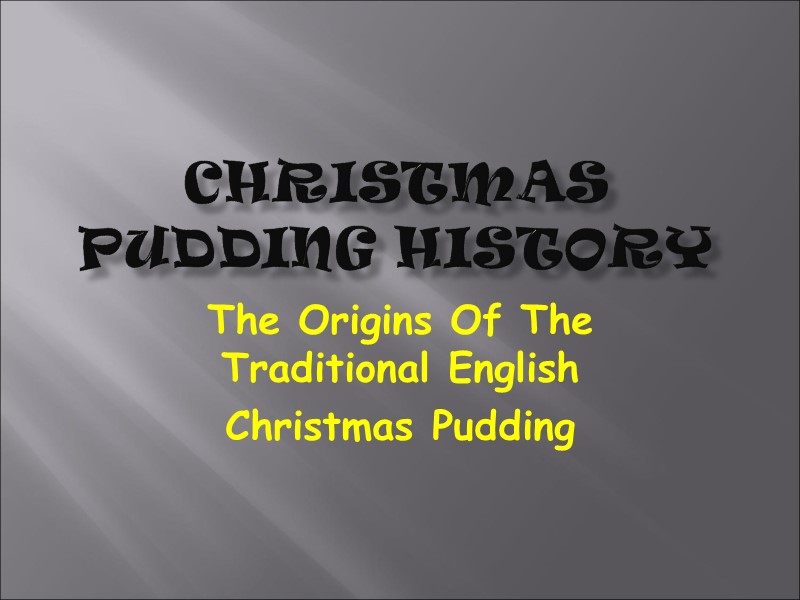 Christmas Pudding History The Origins Of The Traditional English Christmas Pudding
Christmas Pudding History The Origins Of The Traditional English Christmas Pudding
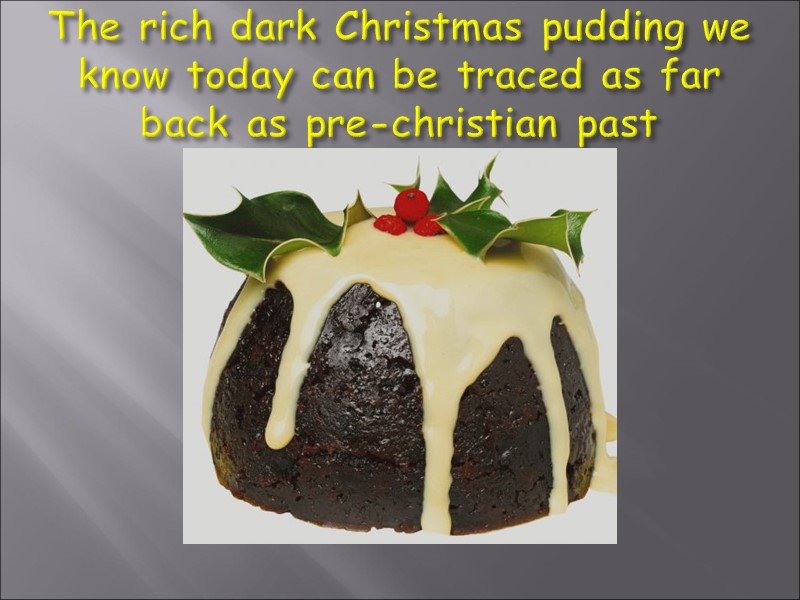 The rich dark Christmas pudding we know today can be traced as far back as pre-christian past
The rich dark Christmas pudding we know today can be traced as far back as pre-christian past
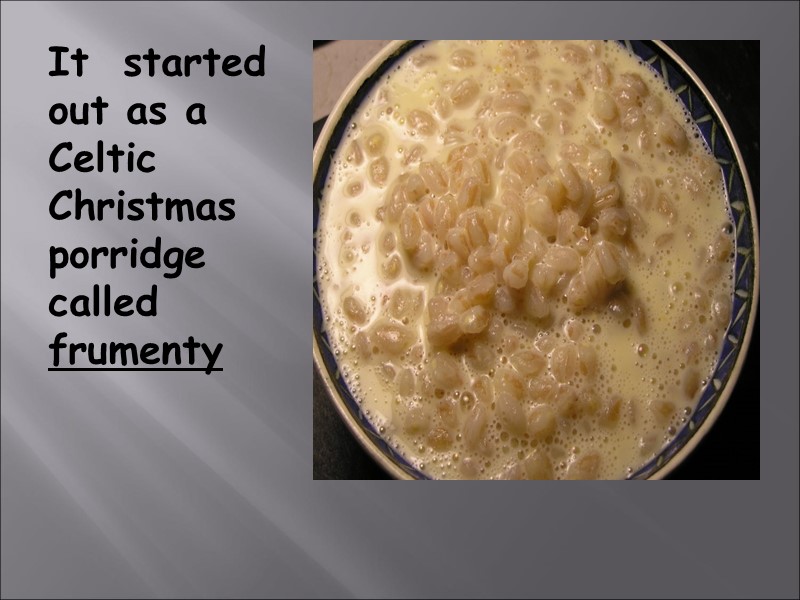 It started out as a Celtic Christmas porridge called frumenty
It started out as a Celtic Christmas porridge called frumenty
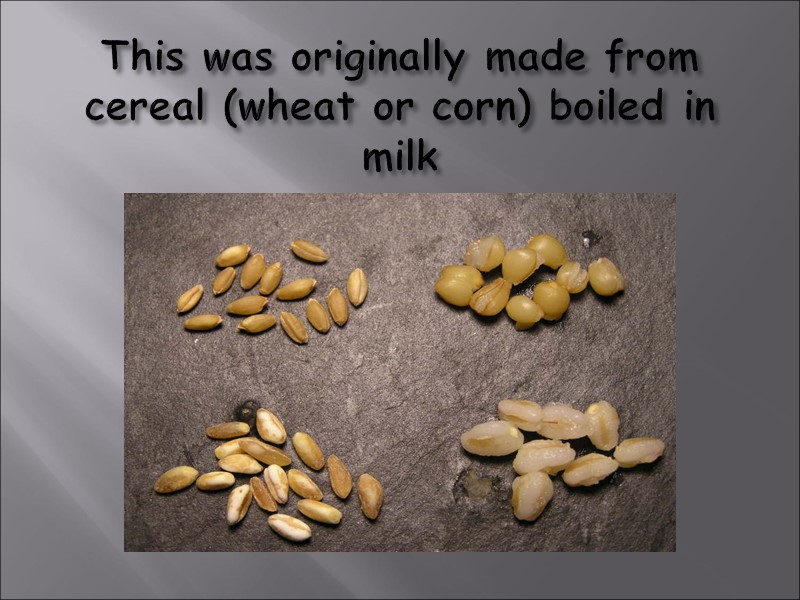 This was originally made from cereal (wheat or corn) boiled in milk
This was originally made from cereal (wheat or corn) boiled in milk
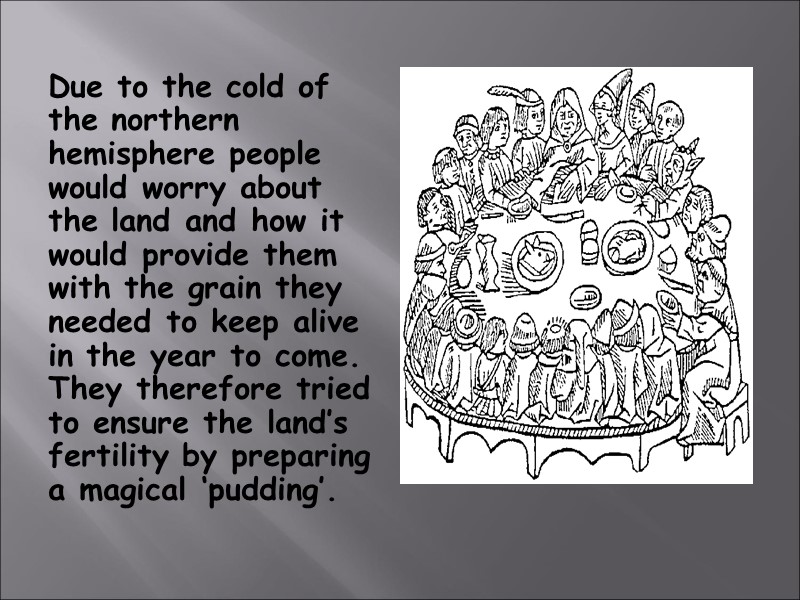 Due to the cold of the northern hemisphere people would worry about the land and how it would provide them with the grain they needed to keep alive in the year to come. They therefore tried to ensure the land’s fertility by preparing a magical ‘pudding’.
Due to the cold of the northern hemisphere people would worry about the land and how it would provide them with the grain they needed to keep alive in the year to come. They therefore tried to ensure the land’s fertility by preparing a magical ‘pudding’.
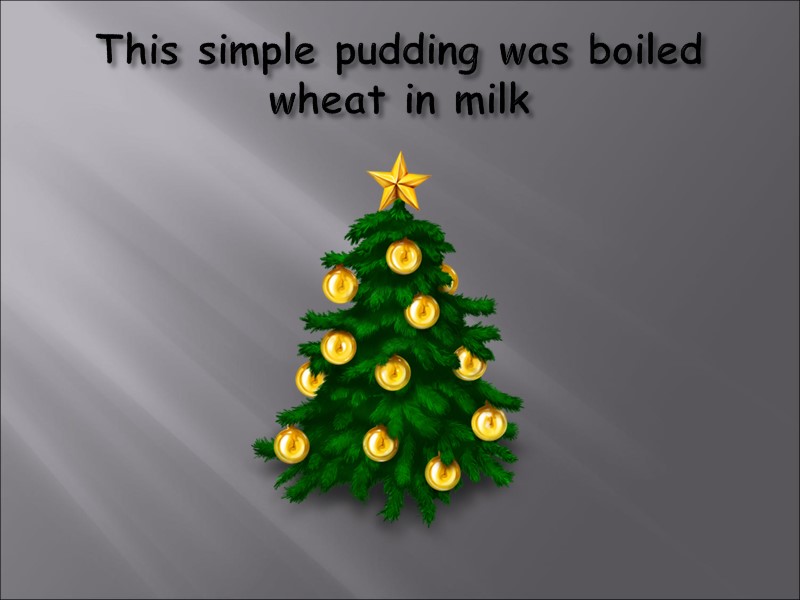 This simple pudding was boiled wheat in milk
This simple pudding was boiled wheat in milk
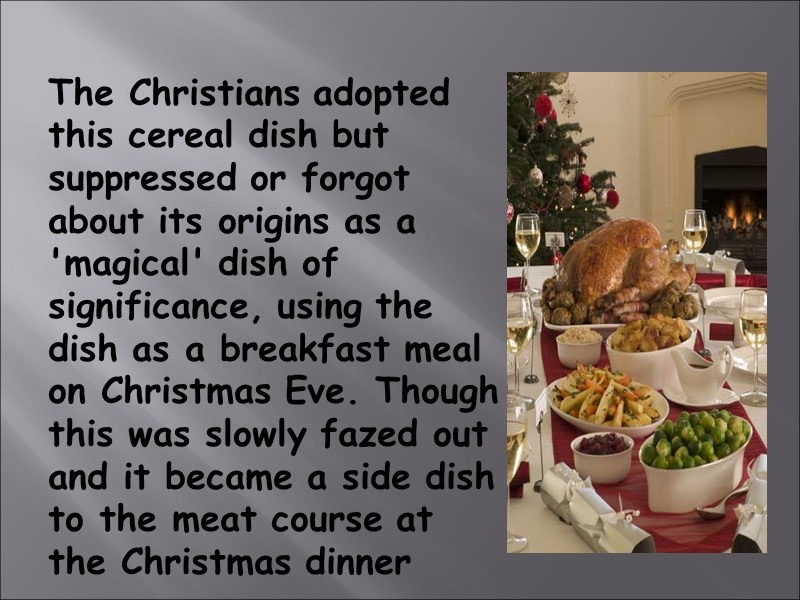 The Christians adopted this cereal dish but suppressed or forgot about its origins as a 'magical' dish of significance, using the dish as a breakfast meal on Christmas Eve. Though this was slowly fazed out and it became a side dish to the meat course at the Christmas dinner
The Christians adopted this cereal dish but suppressed or forgot about its origins as a 'magical' dish of significance, using the dish as a breakfast meal on Christmas Eve. Though this was slowly fazed out and it became a side dish to the meat course at the Christmas dinner
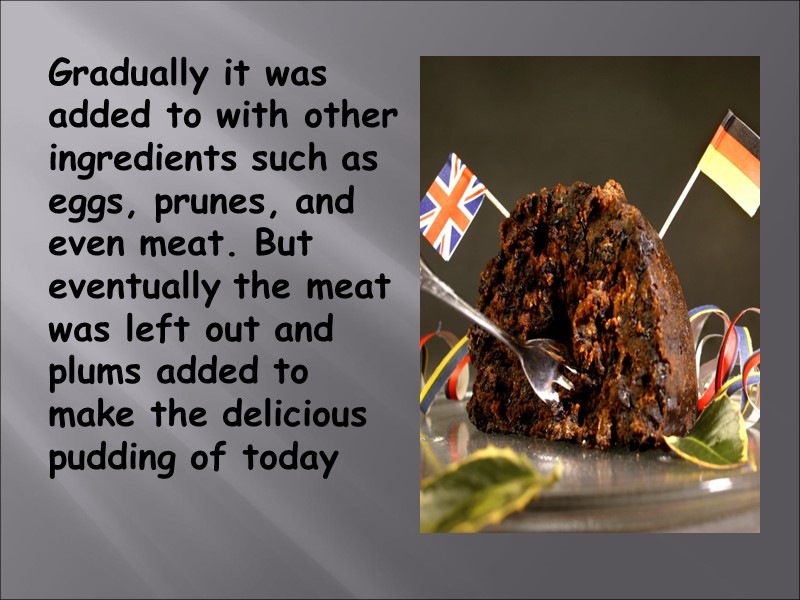 Gradually it was added to with other ingredients such as eggs, prunes, and even meat. But eventually the meat was left out and plums added to make the delicious pudding of today
Gradually it was added to with other ingredients such as eggs, prunes, and even meat. But eventually the meat was left out and plums added to make the delicious pudding of today
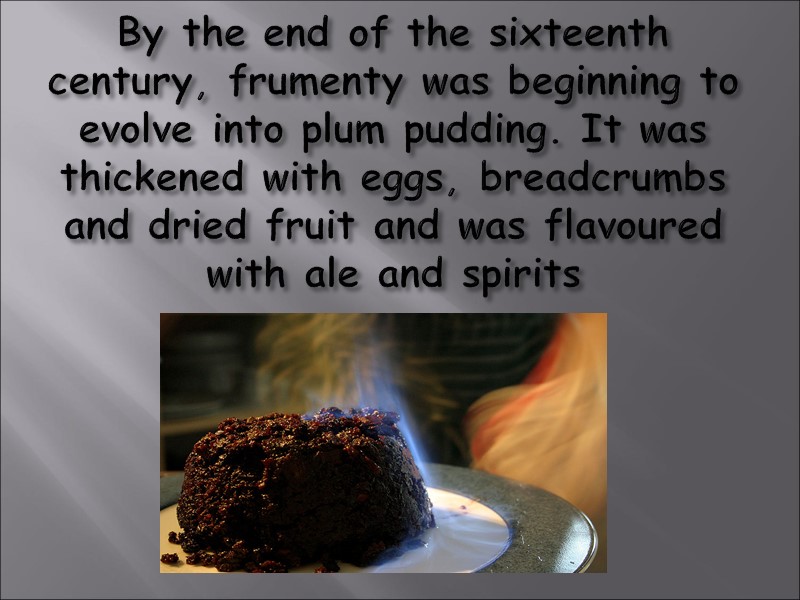 By the end of the sixteenth century, frumenty was beginning to evolve into plum pudding. It was thickened with eggs, breadcrumbs and dried fruit and was flavoured with ale and spirits
By the end of the sixteenth century, frumenty was beginning to evolve into plum pudding. It was thickened with eggs, breadcrumbs and dried fruit and was flavoured with ale and spirits
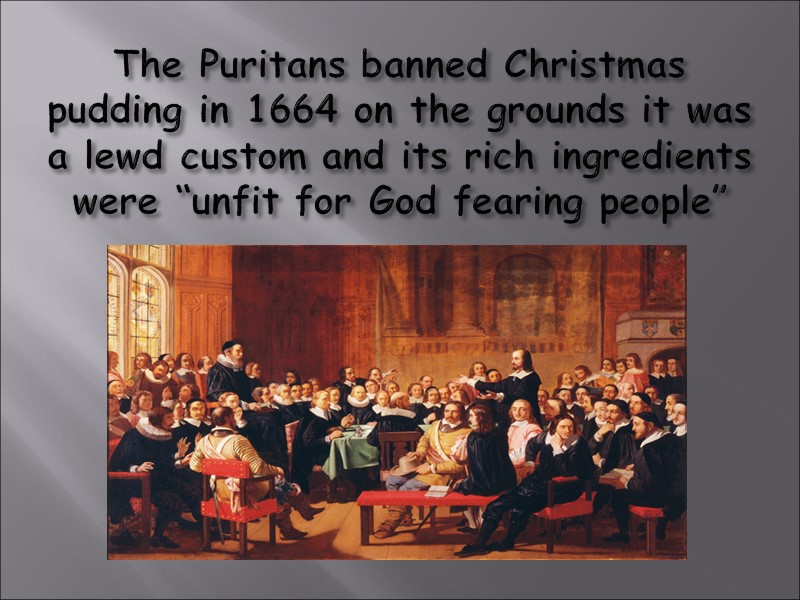 The Puritans banned Christmas pudding in 1664 on the grounds it was a lewd custom and its rich ingredients were “unfit for God fearing people”
The Puritans banned Christmas pudding in 1664 on the grounds it was a lewd custom and its rich ingredients were “unfit for God fearing people”
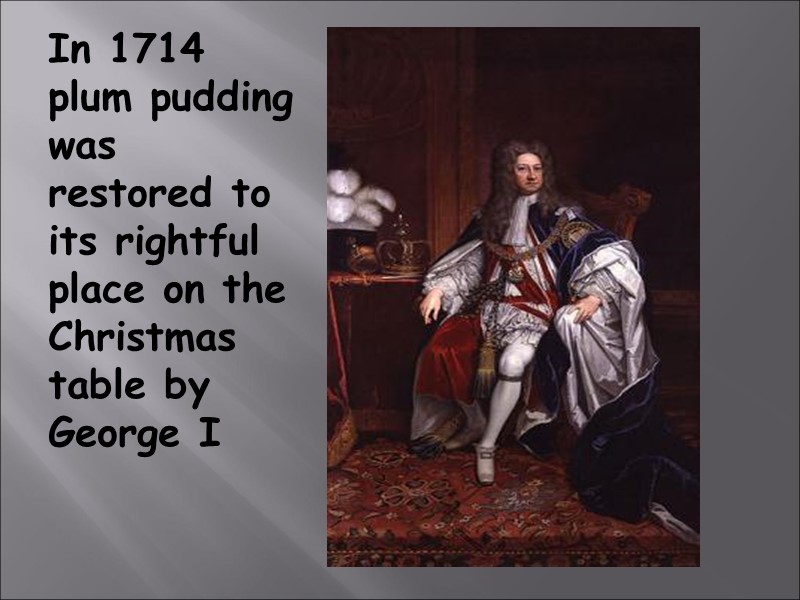 In 1714 plum pudding was restored to its rightful place on the Christmas table by George I
In 1714 plum pudding was restored to its rightful place on the Christmas table by George I
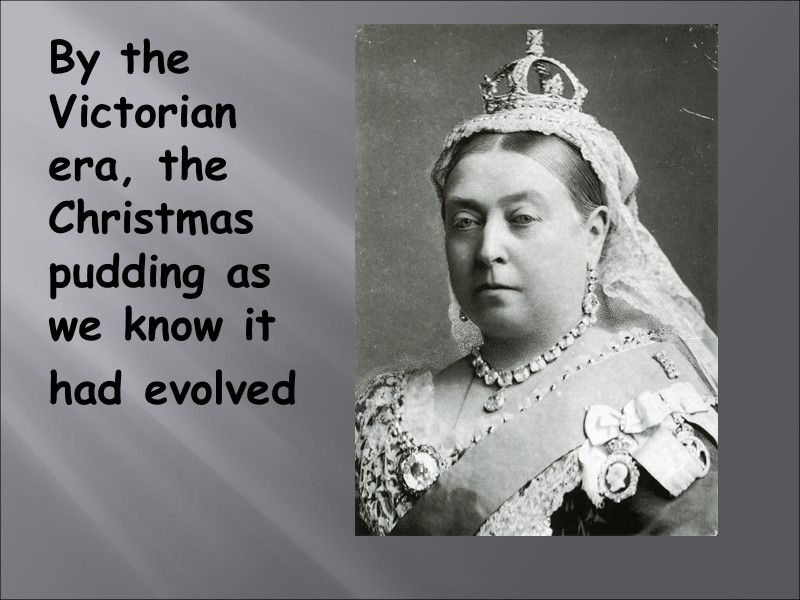 By the Victorian era, the Christmas pudding as we know it had evolved
By the Victorian era, the Christmas pudding as we know it had evolved
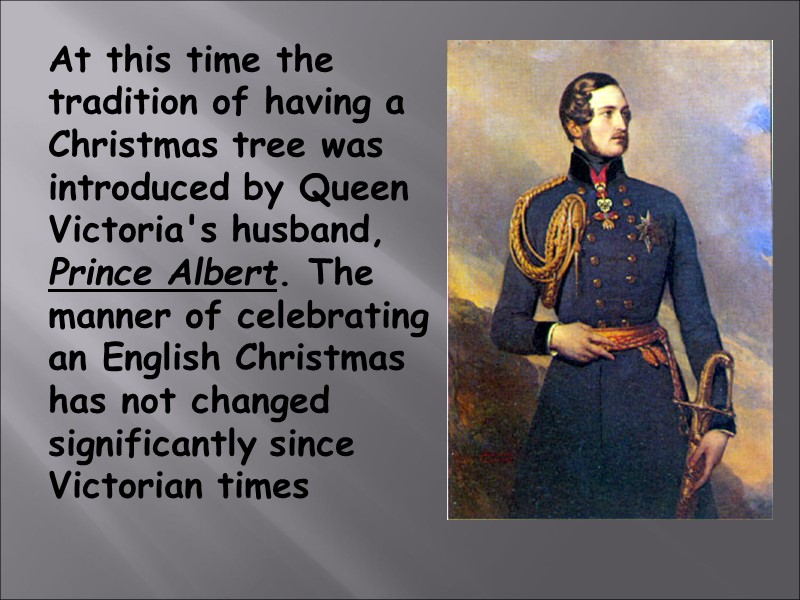 At this time the tradition of having a Christmas tree was introduced by Queen Victoria's husband, Prince Albert. The manner of celebrating an English Christmas has not changed significantly since Victorian times
At this time the tradition of having a Christmas tree was introduced by Queen Victoria's husband, Prince Albert. The manner of celebrating an English Christmas has not changed significantly since Victorian times
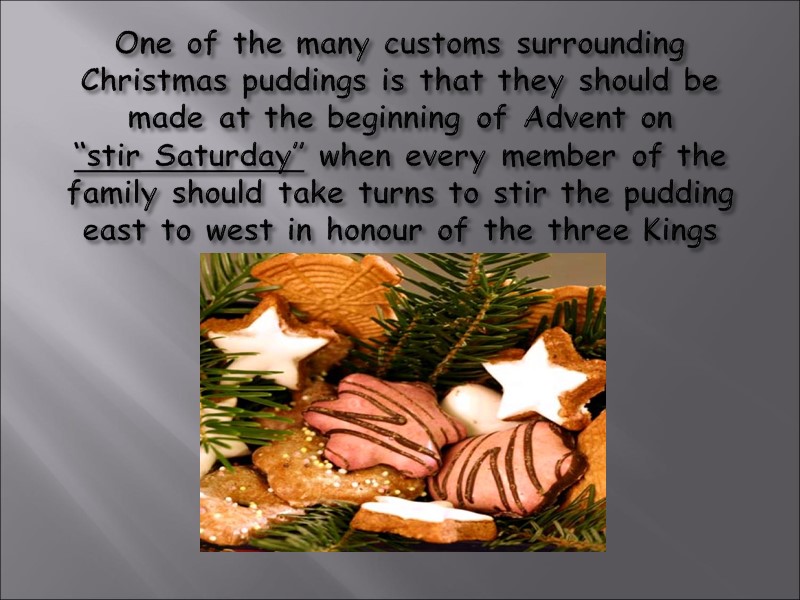 One of the many customs surrounding Christmas puddings is that they should be made at the beginning of Advent on “stir Saturday” when every member of the family should take turns to stir the pudding east to west in honour of the three Kings
One of the many customs surrounding Christmas puddings is that they should be made at the beginning of Advent on “stir Saturday” when every member of the family should take turns to stir the pudding east to west in honour of the three Kings
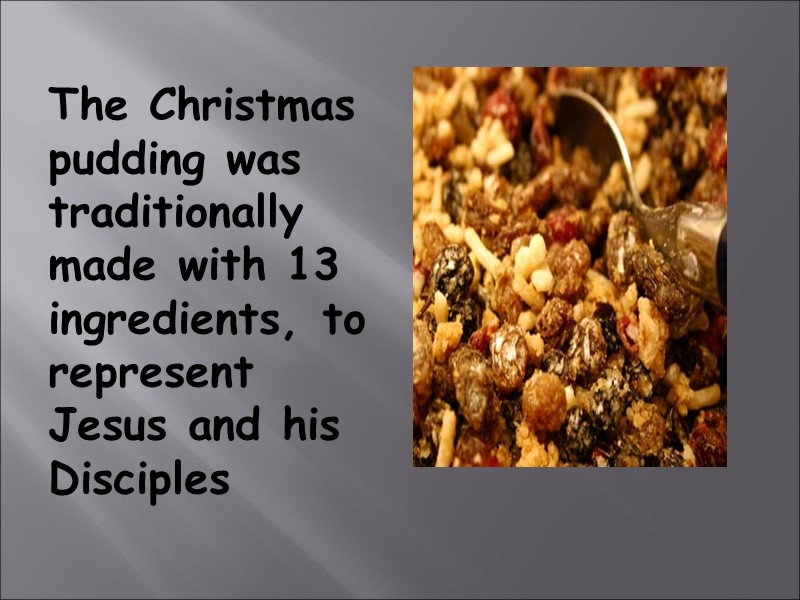 The Christmas pudding was traditionally made with 13 ingredients, to represent Jesus and his Disciples
The Christmas pudding was traditionally made with 13 ingredients, to represent Jesus and his Disciples
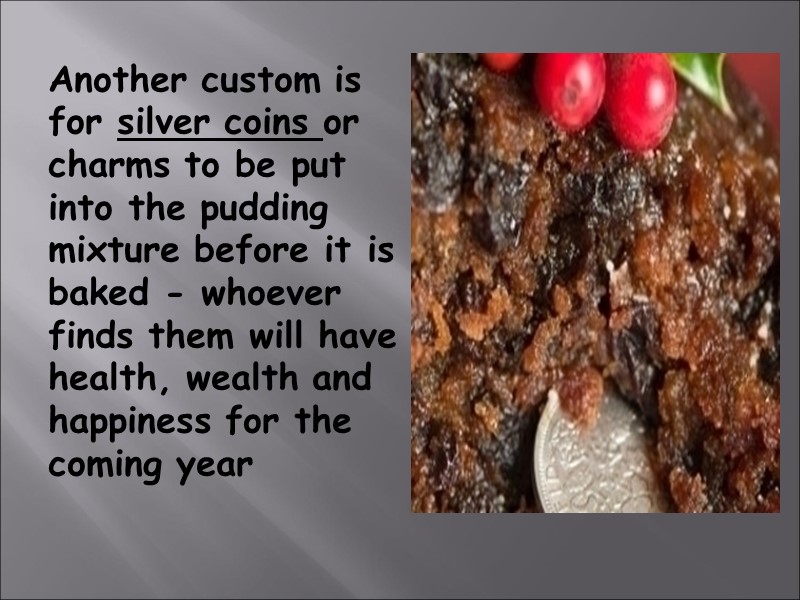 Another custom is for silver coins or charms to be put into the pudding mixture before it is baked - whoever finds them will have health, wealth and happiness for the coming year
Another custom is for silver coins or charms to be put into the pudding mixture before it is baked - whoever finds them will have health, wealth and happiness for the coming year
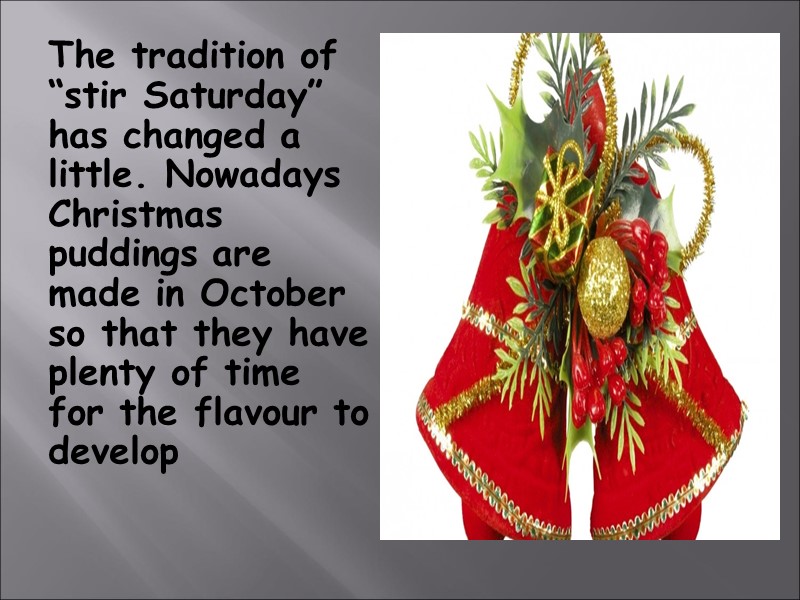 The tradition of “stir Saturday” has changed a little. Nowadays Christmas puddings are made in October so that they have plenty of time for the flavour to develop
The tradition of “stir Saturday” has changed a little. Nowadays Christmas puddings are made in October so that they have plenty of time for the flavour to develop
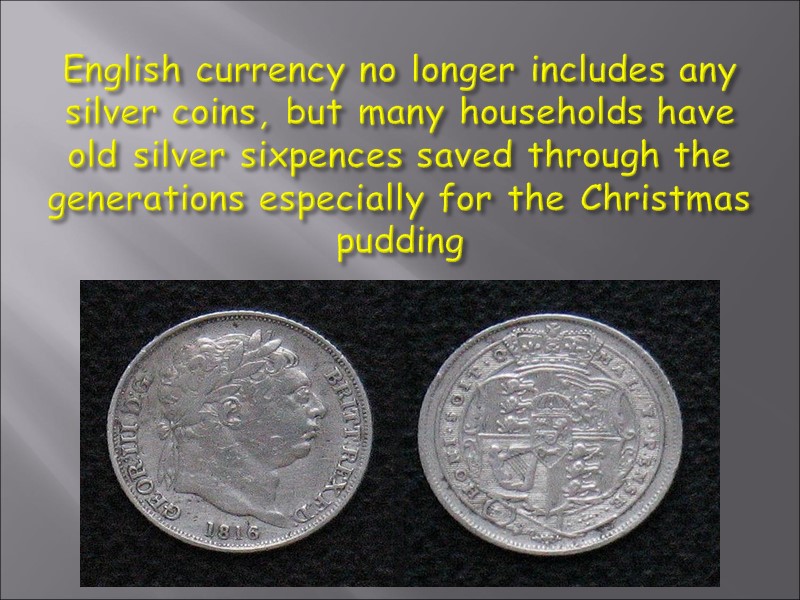 English currency no longer includes any silver coins, but many households have old silver sixpences saved through the generations especially for the Christmas pudding
English currency no longer includes any silver coins, but many households have old silver sixpences saved through the generations especially for the Christmas pudding
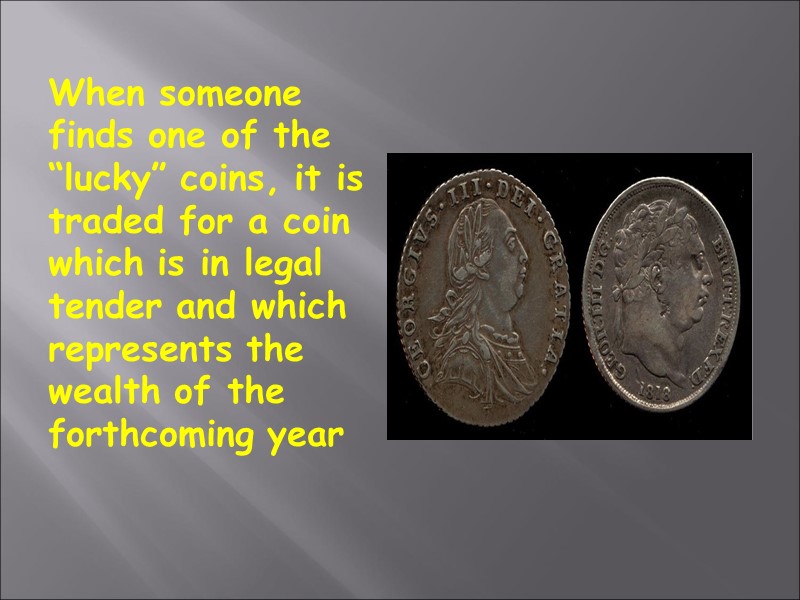 When someone finds one of the “lucky” coins, it is traded for a coin which is in legal tender and which represents the wealth of the forthcoming year
When someone finds one of the “lucky” coins, it is traded for a coin which is in legal tender and which represents the wealth of the forthcoming year





































